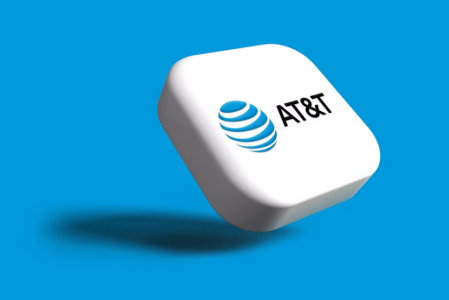AT&T customers could claim $5,000 before this November deadline—are you eligible?
- Replies 2
If you’ve ever had an AT&T account—whether you’re still a customer or you parted ways years ago—there’s a chance you could be owed a chunk of change thanks to a major data breach settlement.
But here’s the catch: you have to act before this November deadline, or you’ll miss your shot at up to $5,000 (and some peace of mind).
Here’s why eligible individuals are urged to take action before it ends.
AT&T, one of America’s telecom giants, found itself in hot water after not one, but two significant data breaches.
In both cases, hackers managed to get their hands on sensitive customer information—think Social Security numbers, call logs, and more.
The fallout? A class action lawsuit that has resulted in a whopping $177 million settlement fund.
Here’s how it unfolded:
If you’re wondering whether you qualify, here’s the scoop:
The more claims, the smaller each individual payout. (Think of it like slicing a pie: the more folks at the table, the smaller the slices.)
This can be a real lifesaver if you’re worried about identity theft or want to keep a close eye on your credit after the breach.
Also read: Only days left for Americans to claim $5,000 checks—here’s the notice you need
You’ll need to fill out a claim form (available online; check the official settlement website or AT&T’s customer communications for the link).
Be honest and accurate—submitting a fraudulent claim not only hurts those who are truly eligible, but it’s also illegal.
Also read: Medicare data breach affects over 100,000—here’s what you need to know now
Instead of thousands of individual lawsuits, there’s one big case, and if you’re part of the “class,” you can claim your share of the settlement.
Class actions are common in cases of pollution, discrimination, false advertising, and—yes—data breaches.
Companies often settle these cases to avoid the cost and uncertainty of a trial, even if they don’t admit fault.
Read next: A major data breach settlement could put up to $2,000 in your pocket—here’s how to file a claim

Have you been affected by a data breach before? Are you planning to file a claim in this AT&T settlement? Do you have tips for keeping your information safe in the digital age?
But here’s the catch: you have to act before this November deadline, or you’ll miss your shot at up to $5,000 (and some peace of mind).
Here’s why eligible individuals are urged to take action before it ends.
AT&T, one of America’s telecom giants, found itself in hot water after not one, but two significant data breaches.
In both cases, hackers managed to get their hands on sensitive customer information—think Social Security numbers, call logs, and more.
The fallout? A class action lawsuit that has resulted in a whopping $177 million settlement fund.
Here’s how it unfolded:
- March 2024: AT&T discovered a data set floating around the “dark web”—that shadowy corner of the internet where anonymity reigns and stolen data is bought and sold. This breach exposed the Social Security numbers of about 7.6 million current customers and a staggering 65.4 million former account holders. (Yes, you read that right—65.4 million!)
- July 2024: AT&T confirmed that nearly all customers’ call log data had been downloaded to a third-party platform during a 2022 security breach. That means details about who you called, when, and for how long could have been compromised.
If you’re wondering whether you qualify, here’s the scoop:
- Current and former AT&T customers whose information was leaked in either the March or July incidents may be eligible.
- The settlement covers two groups: those whose personal data (like Social Security numbers) ended up on the dark web and those whose call logs were accessed without permission.
How much could you get?
- For the March breach, the maximum payout is $5,000 per claimant.
- For the July breach, the cap is $2,500 per person.
The more claims, the smaller each individual payout. (Think of it like slicing a pie: the more folks at the table, the smaller the slices.)
What else is included?
Beyond cash, the settlement also offers up to 24 months of free credit monitoring for those who submit a valid claim.This can be a real lifesaver if you’re worried about identity theft or want to keep a close eye on your credit after the breach.
Key dates to remember
- Claim Deadline: November 18, 2024. If you don’t file by then, you’re out of luck for both cash and credit monitoring.
- Opt-Out/Objection Deadline: October 17, 2025. If you want to object to the settlement or opt out entirely, mark this date.
- Final Approval Hearing: December 3, 2025. This is when the court will give the settlement its final stamp of approval.
Also read: Only days left for Americans to claim $5,000 checks—here’s the notice you need
How do you file a claim?
Filing is straightforward—no need to dust off your law degree.You’ll need to fill out a claim form (available online; check the official settlement website or AT&T’s customer communications for the link).
Be honest and accurate—submitting a fraudulent claim not only hurts those who are truly eligible, but it’s also illegal.
Also read: Medicare data breach affects over 100,000—here’s what you need to know now
What’s a class action lawsuit, anyway?
If you’re new to the world of class actions, here’s a quick primer: When a company’s actions affect a large group of people, a class action lets everyone band together to seek justice (and compensation).Instead of thousands of individual lawsuits, there’s one big case, and if you’re part of the “class,” you can claim your share of the settlement.
Class actions are common in cases of pollution, discrimination, false advertising, and—yes—data breaches.
Companies often settle these cases to avoid the cost and uncertainty of a trial, even if they don’t admit fault.
Read next: A major data breach settlement could put up to $2,000 in your pocket—here’s how to file a claim
Key Takeaways
- AT&T customers affected by two major data breaches can claim up to $5,000 from a class action settlement, but must submit their claim by November 18.
- The settlement covers incidents where personal information, including Social Security numbers and call logs, was leaked onto the dark web or accessed by third parties.
- Those eligible can also receive up to 24 months of credit monitoring if they make a valid claim, but the amount each person receives could be less depending on the number of claims submitted.
- AT&T has agreed to pay out $177 million without admitting wrongdoing, stating the settlement is to avoid lengthy litigation and maintain customer trust.







